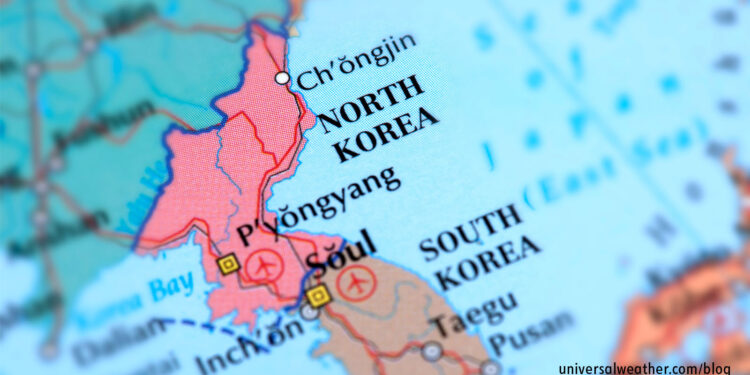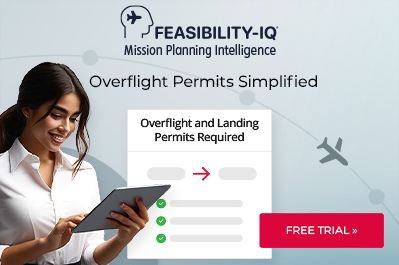Business Aviation Operations to North Korea – U.S. Sanctioned Country Series

This business aviation blog post is part of a series on business aviation operations in U.S. sanctioned countries.
Many U.S.-based corporate flight crews have never had the opportunity to experience the beauty of cherry blossoms along the Taedong River in Pyongyang due to sanctions and other restrictions in place against North Korea (also known as the Democratic People’s Republic of Korea). While the U.S. sanctions on North Korea are not as comprehensive as the U.S. financial and travel-related restrictions on Cuba or Iran, significant restrictions remain on flight operations involving North Korea, including specific restrictions applicable to U.S.-registered aircraft. However, with proper planning and the assistance of an experienced 3rd-party provider, certain flight operations to and from North Korea may be conducted.
1. License requirements and other restrictions when operating to and from North Korea
In general, the U.S. sanctions and export controls imposed on North Korea are targeted at specific entities in and activities involving North Korea, rather than the extremely broad-based sanctions imposed on certain countries such as Cuba. While the U.S. does not impose any restrictions on North Korea overflights or obtaining overflight permits for U.S. or non-U.S. registered aircraft, a number of restrictions remain on flight operations to and from North Korea.
For example, a “temporary sojourn” license must be issued by the Commerce Department’s Bureau of Industry and Security (BIS) for any N-registered aircraft, except those with an air carrier or air taxi operating certificate, operating to or from North Korea. BIS will only approve license applications if the flight is for an authorized activity, such as humanitarian efforts, agricultural or medical sales, or journalism. BIS normally will not approve applications for aircraft involving recreational or other unauthorized activities, including business meetings or commercial activity. The export-controlled equipment on board the aircraft (i.e., equipment listed on the Commerce Control List) should be specified in the BIS license application.
The validity period of BIS temporary sojourn licenses are determined based on the purpose and needs of a particular trip. In some cases, a BIS license may authorize multiple entries into North Korea over an extended period of time. In other cases, they may be valid for a specified number of days.
In addition, because of concerns over the safety of commercial aircraft operating to or from North Korea, the FAA has issued Special Federal Aviation Regulation (SFAR) 79 that limits N-registered aircraft from traveling to certain parts of the capital city of Pyongyang (Pyongyang FIR). However, the practical effect of SFAR 79 is that aircraft traveling to North Korea from the U.S. must seek an exemption from the FAA for permission to fly to North Korea.
The FAA may issue exemptions from SFAR 79 on a case-by-case basis that authorize certain aircraft to travel to restricted areas in North Korea if it is found that the trip is in the public interest. Such exemptions contain certain conditions, including a requirement that the operator obtain all relevant authorizations from other U.S. Government agencies, including BIS.
Because of the length of time necessary to obtain such licenses and exemptions, an operator should apply for both in parallel, and it may take 6-8 weeks to obtain approvals. Your experienced 3rd-party provider can assist in obtaining approvals from BIS and North Korea.
Because the Office of Foreign Asset Control (OFAC) sanctions in place against North Korea are targeted at restricted parties (i.e., entities and individuals on the SDN List), an OFAC license is not needed to operate aircraft for travel to and from to North Korea. You should, however, screen all proposed business contacts in advance against OFAC’s restricted parties list. Such restrictions are targeted towards specific entities and individuals that have been sanctioned for illegal acts such as export violations, international acts of terrorism, narcotics and weapons trafficking or money laundering. Your 3rd-party provider may be able do this in a matter of minutes.
See the following Web sites for more information: OFAC and BIS.
2. 3rd-party providers can arrange full services for properly licensed U.S. operators
Once the BIS license has been obtained and the FAA SFAR 79 exemption is in place, your 3rd-party provider may begin orchestrating all trip support elements, including:
- Preparing and filing flight plans, providing weather information, obtaining overflight and landing permits, submitting APIS, and crew and passenger information
- Making arrangements to organize and pay for ground services, handling, in-flight catering, transportation, aircraft parking, refueling, landing fees, hotels, and necessary credit arrangements
- Because of the significant restrictions imposed on travelers in North Korea, all necessary travel arrangements, including visas, should be made as far as possible in advance of the trip
Keep in mind that if a U.S.-based operator does not have both a BIS license and FAA SFAR 79 exemption, U.S.-based 3rd-party providers cannot offer any services to the operator.
3. Non-U.S. operators may utilize U.S.-based 3rd-party providers to plan trips to North Korea
U.S.-based 3rd-party providers may organize trip support, ground handling, and credit services for non-U.S. registered aircraft, so long as services are deemed ordinarily incidental to travel. In other words, U.S.-based 3rd-party providers may arrange the same services available to licensed U.S. operators. It is important for non-U.S. operators, however, to confirm with their local governing authority that there are no other country-specific sanctions or restrictions in place against North Korea.
4. Understand all licensing requirements and restrictions
Success of your license application and FAA exemption will depend upon your reasons for travel to North Korea. For example, a humanitarian organization may receive a BIS license to operate an aircraft to and from North Korea, whereas a U.S.-based defense contractor may be less successful with an application. In practice, SFAR 79 exemptions usually come through before BIS licenses. Provide as much information as possible to the relevant agency when submitting license and exemption applications, or you will minimize your chance of success.
5. Non-licensing considerations may impact a planned trip to North Korea
Aside from U.S. government licensing restriction, consider operating restrictions that your insurance policy, lease agreement, or flight department’s operational specifications may have. Your operations specifications, for example, may prohibit overflight of North Korea, even though there are no U.S. restrictions impacting overflights of North Korea. Use of credit cards issued by U.S. banks is also prohibited in North Korea, and other credit arrangements are difficult. However, your 3rd-party provider can assist operators in providing the most up-to-date information, guidance on obtaining the appropriate licenses, and overall guidance through this complex process to make the trip as smooth as possible.
Even if all required licenses and exemptions have been obtained, you could still experience challenges, such as technical issues, while in North Korea. In the case of an aircraft on the ground (AOG), emergency passengers should be able to fly from North Korea commercially. Additionally, aviation maintenance technicians can fly to North Korea without any special authorization other than a visa, but it may take weeks to arrange appropriate permits to bring in replacement parts, depending upon the sensitivity of the technology and whether an export license is required from BIS.
Closing thoughts
U.S.-based 3rd-party providers have a great deal of flexibility providing services for flight operations to and from North Korea. However, because sanctions are based on foreign policy considerations, they can be strengthened or weakened on short notice. Even after your North Korean license has been approved, it can be revoked at any time. Because of the complexities involved, it is extremely important for operators to work closely with an experienced 3rd-party provider who can offer the most up-to-date information, guidance on obtaining the appropriate licenses, and overall guidance through the process to make the trip as smooth as possible.
Questions?
If you have any questions about this article, contact Christine Vamvakas at christinevamvakas@univ-wea.com.




